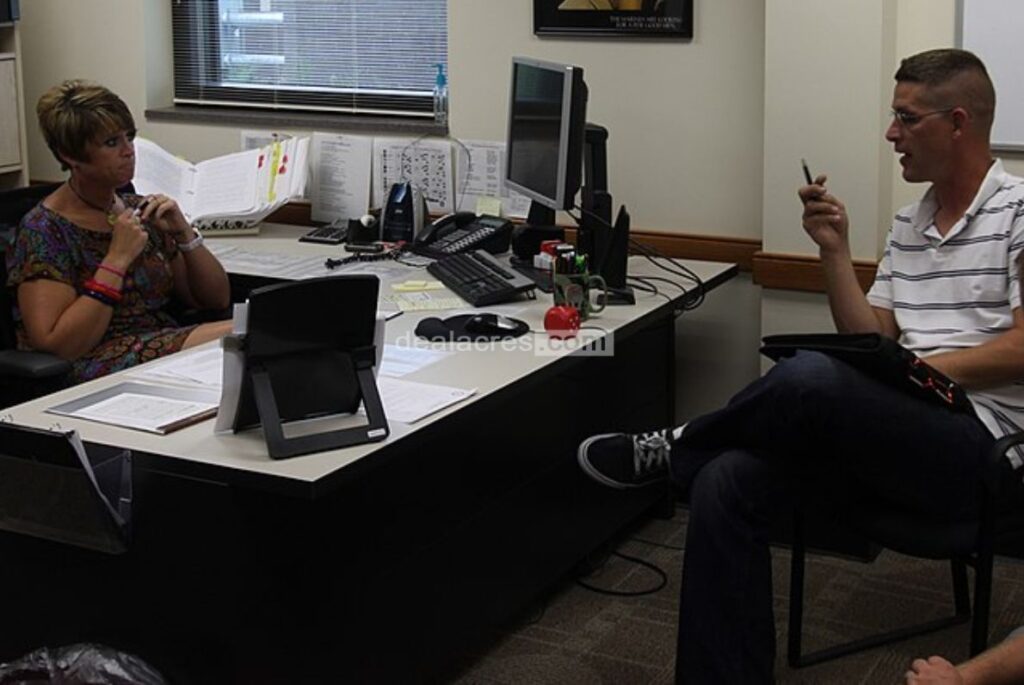Introduction:
Changing your career at 40 can be a big and exciting step. Maybe you want more personal happiness, your priorities are shifting, or you’re finally pursuing a dream you’ve had for a long time. Whatever the reason, it’s essential to think carefully about it. This guide will discuss nine important things to consider when changing careers at 40. We’ll look at your skills, money situation, and how to handle the feelings that come with big changes. Think of it as a friendly roadmap to help you through this journey. We want to provide you with simple and practical advice to make this transition smoother. So, whether you’re assessing what you’re good at or figuring out your budget, we’re here to support you every step of the way on this new career adventure at 40.

- Self-Assessment: Reflecting on Your Skills and Interests
Before jumping into a new job adventure, let’s think about what you’re good at and what you like to do. Take a moment to figure out what skills you already have and what you enjoy. It’s like making a list of your talents and strengths. These skills can be like building blocks for your next job – they can help you succeed in a new career.
Think about what you do at your current job – are there skills you use that could be handy in a different job? These are called transferable skills, and they can be super useful when you’re changing careers. Knowing what you’re good at and what you like can guide you to a new job that fits what you enjoy and what you’re awesome at doing. So, take a little time to reflect on your skills and interests – it’s like making a roadmap to find a new job that matches what you love and are great at.
- Financial Preparedness: Evaluating Your Budget and Savings
It can affect your money situation when you’re thinking about switching careers. So, take a good look at your money stuff. Check your budget, savings, and anything you’re paying for. Changing careers might change how much money you make and if you need to change how you spend money. Understanding all this money will help you make good plans and smart choices while switching to a new job. It’s like making sure you have the right tools before starting a big project – knowing your money situation is an important tool for your career change. So, take a moment to look at your money, plan, and make the best choices for your new career journey. Remember, being prepared with the right financial info can make your career change smoother and less stressful.
- Skill Development: Upskilling for a Changing Job Market
Figure out what skills are needed in your desired job and see where you might be lacking. Take some time to learn and improve those skills through classes, workshops, or getting certified. This ongoing learning makes you more likely to get hired and shows employers that you can adapt to changes in the job market. It’s like adding new tools to your toolbox – the more skills you have, the better you can tackle different challenges. So, don’t be afraid to learn and grow. It’s a great way to ensure you’re ready for whatever the job market throws your way, making you a valuable asset to potential employers. Remember, the learning journey never stops, and each new skill you acquire brings you one step closer to achieving your career goals.

- Researching Industries and Roles: Exploring New Opportunities
Find out about jobs and industries that match what you’re good at and what you like. Go to events where you can meet people in those fields, talk to them, and ask questions. Try to have casual interviews with experts to learn more. This will help you determine what jobs are out there and what skills are needed. Understanding what’s in demand in the job market will guide you in making smart choices about changing your career. It’s like exploring a new neighbourhood – you want to know what’s around before deciding where to settle. So, talk to people, learn about different jobs, and discover the opportunities in your new career path.
- Networking: Building Connections in Your New Field
Building a good network is super important when you’re changing your career. It’s like making friends in your new field! Go to events where people from that industry hang out, join online discussions, and connect with others working in your desired job. This networking thing is not just about making friends; it can help you learn, find someone to guide you (like a mentor), and even discover job possibilities. Imagine it like having a bunch of people who’ve got your back and want to see you do well – that’s what networking can do. So, don’t be shy; get out there and start making connections. It’s like opening the door to many exciting opportunities that can make your career change journey much smoother.
- Psychological Preparedness: Managing Change and Resilience
A career change is not just about skills; it’s also a psychological journey. Be prepared for challenges and setbacks. Develop resilience to navigate uncertainties and maintain a positive mindset. Seeking support from friends, family, or a career counsellor can help you manage the emotional aspects of change.
- Family Considerations: Communicating and Planning Together
A career change affects not only you but also your family. Open communication and planning with your loved ones are essential. Discuss the potential impact on family life, finances, and daily routines. Their support and involvement in decision-making will contribute to a smoother transition.
- Flexibility and Adaptability: Embracing Change
Being flexible and adaptable is key to a successful career change. Industries evolve, and your path may take unexpected turns. Embrace change as part of the process, staying open to new opportunities and adjusting your plan as needed.

- Career Counseling: Seeking Professional Guidance
Consider engaging a career counsellor or coach to provide expert guidance. A professional can offer personalized advice, help you clarify your goals, and provide strategies for overcoming challenges. Their experience and insights can be invaluable as you navigate the complexities of a career change.
Conclusion:
Embarking on a career change at 40 is a bold and empowering decision. By considering these nine factors – from self-assessment and financial preparedness to networking and psychological resilience – you can confidently navigate the complexities of change. Embrace the opportunities that come with a new career path, and remember that it’s never too late to pursue a fulfilling and rewarding professional journey. Your 40s can be a pivotal time for personal and career growth, and with thoughtful planning, you can create a future that aligns with your passions and aspirations.




